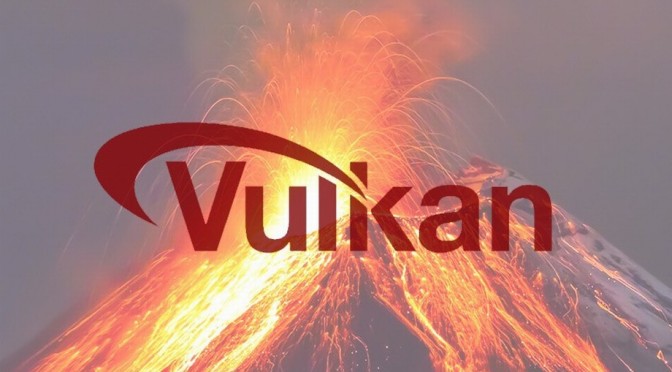The Khronos Group announced today the release of the Vulkan 1.2 specification for GPU acceleration. This release integrates 23 proven extensions into the core Vulkan API, bringing significant developer-requested access to new hardware functionality. This new version will also improve application performance, and will enhance API usability.
Many Vulkan 1.2 features were requested by developers to meet critical needs in their engines and applications. These features include: timeline semaphores for easily managed synchronization; a formal memory model to precisely define the semantics of synchronization and memory operations in different threads; descriptor indexing to enable reuse of descriptor layouts by multiple shaders; deeper support for shaders written in HLSL, and more.
Tom Olson, distinguished engineer at Arm, and Vulkan working group chair, said:
“Vulkan 1.2 brings together nearly two dozen high-priority features developed over the past two years into one, unified core Vulkan standard, setting a cutting-edge bar for functionality in the industry’s only open GPU API for cross-platform 3D and compute acceleration. Khronos will continue delivering regular Vulkan ecosystem updates with this proven, developer-focused methodology. We aim to both meet the needs and expand the horizons of real-world applications.”
Khronos and the Vulkan community will also support Vulkan 1.2 in a wide range of open source compilers, tools, and debuggers by the end of January 2020. This includes the RenderDoc frame capture and debugging tool, the Vulkan conformance test suite, and the Vulkan SDK with support for both the ‘GPU Assisted’ and ‘Best Practices’ validation layers.
Lastly, all GPUs that support previous versions of Vulkan are capable of supporting Vulkan 1.2, ensuring its widespread availability. As of today, five GPU vendors have Vulkan 1.2 implementations passing the Khronos conformance tests. These are: AMD, Arm, Imagination Technologies, Intel, NVIDIA, plus the open-source Mesa RADV driver for AMD.

John is the founder and Editor in Chief at DSOGaming. He is a PC gaming fan and highly supports the modding and indie communities. Before creating DSOGaming, John worked on numerous gaming websites. While he is a die-hard PC gamer, his gaming roots can be found on consoles. John loved – and still does – the 16-bit consoles, and considers SNES to be one of the best consoles. Still, the PC platform won him over consoles. That was mainly due to 3DFX and its iconic dedicated 3D accelerator graphics card, Voodoo 2. John has also written a higher degree thesis on the “The Evolution of PC graphics cards.”
Contact: Email

